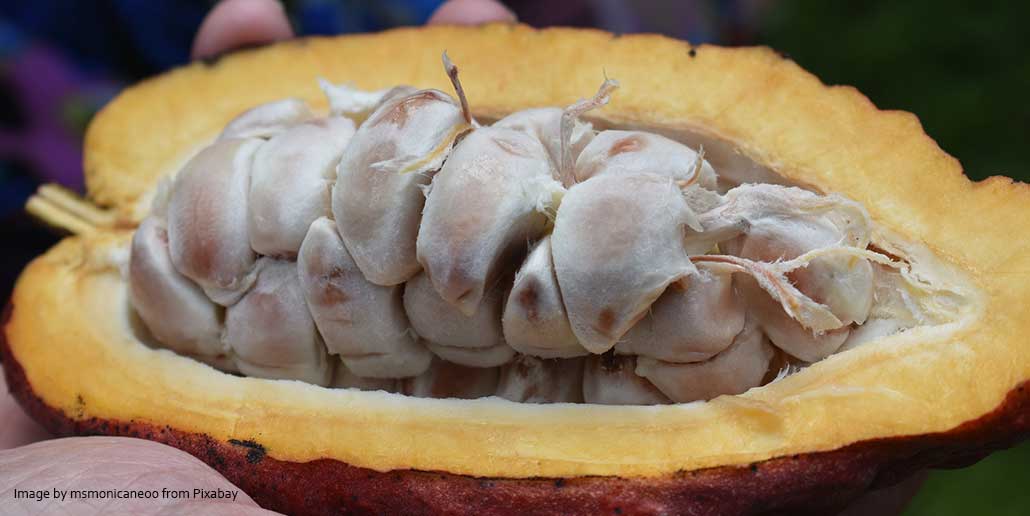
Research into Climate-Resistant Cocoa Varieties
Cocoa, the main ingredient in chocolate, is facing a significant threat from climate change. Rising temperatures, shifting rainfall patterns, and increased frequency of extreme weather events are jeopardizing the global cocoa supply, with detrimental effects on farmers, economies, and industries dependent on cocoa production. However, recent research into climate-resistant cocoa varieties offers a promising solution to safeguard this essential crop.
Climate Change Impact on Cocoa Production
Cocoa is traditionally grown in tropical regions near the equator, where temperatures range between 25°C and 30°C (77°F to 86°F). Cocoa trees are highly sensitive to environmental changes, with even slight fluctuations in temperature or water availability affecting their growth and productivity. The impacts of climate change on cocoa production are most pronounced in countries like Côte d’Ivoire, Ghana, and Indonesia, which are among the largest producers of cocoa globally.
According to a report from the International Cocoa Organization (ICCO), global cocoa production is expected to decrease by 30% by 2050 due to climate-related factors. This decline could lead to an increase in prices and an overall shortage of cocoa beans, affecting the chocolate industry and millions of smallholder cocoa farmers who rely on it for their livelihood.
Breeding Climate-Resistant Cocoa Varieties
To counter these challenges, researchers have been focusing on developing climate-resistant cocoa varieties. These new cultivars are designed to withstand the extreme weather conditions caused by climate change, including higher temperatures, droughts, and heavy rainfall.
The International Institute of Tropical Agriculture (IITA) has been at the forefront of this research, conducting breeding programs aimed at producing cocoa trees with enhanced resilience to environmental stresses. For example, the IITA has been working on a project to breed cocoa varieties that are resistant to diseases such as black pod rot, which becomes more prevalent in warmer, wetter climates. The aim is to develop trees that can withstand higher temperatures while maintaining or even increasing their yield.
Genetic Research and Biotechnology
One promising approach is the use of biotechnology and genetic engineering to create cocoa varieties with enhanced resistance to climate-related challenges. The use of genetic markers and DNA sequencing has allowed researchers to identify genes responsible for traits such as drought tolerance, heat resistance, and disease resistance. By introducing these traits into existing cocoa varieties, researchers hope to create more robust plants capable of thriving in changing climates.
For example, a team of scientists from the University of California, Riverside, has been working on genetically modified cocoa plants that can tolerate both drought and heat. Their research has shown that these genetically modified cocoa trees perform better in harsh conditions compared to traditional varieties. While genetically modified cocoa is not yet widely accepted in the market, this research could pave the way for the development of climate-resilient crops in the future.
Partnerships and Collaborations
The importance of collaboration in this research cannot be overstated. Several international organizations and private companies are working together to accelerate the development of climate-resistant cocoa varieties. The Cocoa Research Centre (CRC) at the University of the West Indies, for example, is collaborating with the International Cocoa Initiative (ICI) and the World Cocoa Foundation (WCF) to improve the livelihoods of cocoa farmers by providing access to climate-resilient varieties.
Additionally, some chocolate companies, including Mars and Nestlé, have also committed to investing in sustainable cocoa farming. Mars, for instance, has pledged to work with 130,000 cocoa farmers in West Africa to improve their resilience to climate change by providing access to better agricultural practices, training, and climate-resilient cocoa varieties.
Statistics and Future Outlook
According to a report by the World Cocoa Foundation, research and innovation in cocoa farming have led to improvements in productivity, with new cocoa varieties showing an average increase in yields of up to 20%. However, the overall impact of climate change remains a major concern, and without continued investment in climate-resilient varieties, the industry faces significant challenges.
The UN Food and Agriculture Organization (FAO) estimates that the cocoa sector could lose up to $2 billion annually by 2050 due to the combined effects of climate change and low productivity. Research into climate-resistant cocoa varieties is an essential step toward ensuring the sustainability of the cocoa industry in the face of climate change. With increasing collaboration among researchers, farmers, and private companies, the development and adoption of climate-resilient cocoa varieties hold great promise for maintaining global cocoa supply chains. As the world faces the pressing challenge of climate change, these innovative solutions will play a crucial role in protecting the livelihoods of cocoa farmers and securing the future of the chocolate industry.
Sources
- International Cocoa Organization (ICCO). “Cocoa Market Review,” 2023. www.icco.org
- International Institute of Tropical Agriculture (IITA). “Annual Report 2023.” www.iita.org
- World Cocoa Foundation (WCF). “The Future of Cocoa,” 2022. www.worldcocoafoundation.org
- Food and Agriculture Organization (FAO). “Impact of Climate Change on Cocoa Production,” 2021. www.fao.org
- University of California, Riverside. “Genetic Engineering of Cocoa,” 2024. www.ucr.edu

